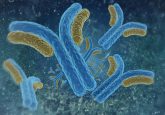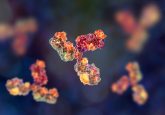New method created to easily and safely detect prostate cancer
Urine-based test could detect disease much sooner than currently used approach.
A team of chemists at the University of California, Irvine (CA, USA), have recently reported a way to accurately test for prostate cancer by identifying chemically usable markers present in urine. According to Reginald Penner, professor of chemistry at the university and one of the authors of the work, the research could potentially lead to the development of an at-home test. “Our goal is a device the size of a home pregnancy test priced around US $10. You would buy it at the drugstore or the grocery store and test yourself. We’re on the verge of a very important breakthrough in a new era of personal health management.”
In the USA, approximately 240,000 men are diagnosed with prostate cancer each year, and current testing often fails to detect the disease in its early stages, while it can also produce false positives and consequently lead to unnecessary and risky treatments. Similarly, a recent report concluded that the prostate-specific antigen test can be more harmful than beneficial. For these reasons, the scientists focused their efforts on using a different biomarker, prostate-specific membrane antigen, whose, “concentrations in biological fluids appear to offer a more useful metric for prostate cancer diagnosis and prognosis.” As an example, the prostate-specific membrane antigen concentration increases from 0.25 nM to approximately 3.5 nM in prostate cancer patients’ biological fluids, including urine, therefore offering an important biomarker for the development of biosensor-based diagnostic devices.
In their work the researchers developed a new type of sensor, adding nanoscale protein receptors to phages and utilizing a concept known as ‘phage-wrapping’, which increases ligand density and as a result produces more sensitive measurements with higher signal-to-noise ratios. “We add a high concentration of the viruses, and they get trapped directly in the electrode. We’re jamming the signal with the cancer marker, and it stays on louder than all the other material,” said Kritika Mohan, lead author of the research. “To our surprise, it works really well in the ingredients that make up urine.” With other tests for prostate cancer costing up to $4000, the team also made cost a key factor within the work. “The manufacturing costs would be low, because the material costs are very, very low. The receptors for recognizing the cancer markers are really inexpensive to make. That’s why we chose these viruses,” explained co-author Gregory Weiss. “They’re grown in a yeasty, brothy solution…that could easily be mixed on a huge scale.”
According to the press release, the next stage is to conduct human clinical trials, which the group hope can be undertaken quickly due to the fact that the testing in non-invasive. The current method has been patented and licensed, and a commercial partner has been identified.
Sources: Mohan K, Donavan KC, Arter JA, Penner RM, Weiss GA. Sub-nanomolar detection of prostate-specific membrane antigen in synthetic urine by synergistic, dual-ligand phage. J. Am. Chem. Soc. 135(20), 7761−7767 (2013); UCI chemists devise inexpensive, accurate way to detect prostate cancer.





